Have you ever had to speak in front of a group of people? If so, do any of these sound familiar?
- Feeling physically sick
- Butterflies in your stomach (like free-falling down a roller coaster slope)
- Feeling weak
- Legs wobbly as if they’re about to buckle
- Enormous pressure and stress
- Tenseness in the neck and shoulders
- Forgetfulness and difficulty concentrating
- Lack of confidence and self-doubt
- Sweaty pits and palms
- Dry mouth
- Fear of failing
That’s a list of common symptoms that most people experience when having to stand in front of an audience. Sadly, that’s probably not all of them. People are different after all.
The fear of public speaking for me was the most stressful obstacle I’ve dealt with in my life. The symptoms made me feel like a heap of crap—a wuss. I questioned myself and inside I was ashamed to feel this way.
To overcome the fear, I sought the advice of others in the form of books, podcasts, courses, asking experienced speakers, etc. Nothing was working for me, though. I felt as though they couldn’t relate to what I was going through, like they were missing some crucial steps that new speakers go through. Most of it was of the “just do it” variety, which is only part of the equation.
Well, I was doing it. I was getting experience, I was studying, yet the fear wasn’t subsiding. In fact, it was getting stronger. For 7 brutal months it was worsening and I contemplated giving up completely.
To this day, I don’t really know why I didn’t, and I’m thankful I didn’t because finally I developed a system that helped me overcome the fear. And that’s why I’ve decided to help others solve this despicable plague.
One of the advantages I bring is that I know what goes through the mind of a nervous speaker. The fear hit me so hard that it imprinted its tire treads into my brain. Many speaking veterans don’t remember what it was like. Too much time has gone by since they experienced the fear for the first time, and this makes them unable to relate or sympathize with a neophyte.
What if there were a walkthrough guide for how to navigate through the fear?
Fear not because I know your pain. Today we're going to walk through it all. You ready?

Let’s Begin:
Whenever you see someone offering INSTANT tips and tricks for overcoming the fear of public speaking, please do me a favor. Be vigilant. Extend your B.S. antenna and jab it squarely into the chest of the messenger.
It’s non-sense. There is no magic pill that you can catapult down the hatch and instantly be cured. There are methods that work, methods that don’t, and then there’s time and experience.
You need methods that work, but you also need opportunities to implement them during live situations. And lastly, you need time. There’s no shortcut except how fast you want to move.
We all want instant gratification. It sells for sure—probably always will. But, avoid being deceived when it comes to personal development such as overcoming fear. Habits don’t form overnight, nor did the fear of public speaking, so it's not going to instantly disappear.
I’m not saying you can’t throw yourself into a scary situation and come out on top, because there are plenty of thrill-seekers and risk-takers that would beg to differ. What I’m talking about is to truly be in control of yourself when fear starts beating on you--without panicking.
This is how it works when something gets over-hyped or over-promised:
You now have an expectation. So, you jump right into a speaking experience thinking it’s going to be just a tad easier than putting on your pants, and then suddenly you feel the fear smash against you like a 30-foot wave. Your survival instincts take over and now you're frozen like a Popsicle.
You’ve now been mentally scarred. The last thing you will want to do is try that again. I don’t blame you.
Imagine instead that you go into that same experience knowing exactly what is going to happen to your body, and then respecting it.
If it comes, you were already prepared for the onslaught of nervous sensations. From there, since you’ve experienced what it’s like, you can begin the process of dismantling it.
If the fear doesn’t hit you with rhinoceros-force, then, all the better. Your thought process will instead be “That wasn’t so bad.” A much better perspective, don't you think?
What Do You Need Then?

1. You need to know why fear comes
Knowing why will help demystify your fear. When you understand why it occurs, it takes fear’s power away.
The best way I've heard it described, whether true or not, is that it's our prehistoric caveman instincts that are hardwired into our brains.
Back in the days of cavemen, it was dangerous to be alone. If you were ousted from your tribe, you'd be in a deadly situation because of hungry predators. It was much easier to fend off would-be attackers if you traveled in a group.
Wolves are a perfect example of this. They use teamwork in order to get dinner. Now, imagine you were dinner. Catch my drift?
2. You need to know what to expect in terms of negative thoughts, physical sensations, self-doubt, etc.
We're all affected a little differently when fear arrives to our party.
The physical symptoms such as your heart beating the bongos, sweating, shaking, blushing, crying, and surely others.
Then there's the stuff that goes on inside your head. It ain't pretty. Things like self-doubt where you think of all the scenarios where you completely fail.
You may ask yourself many questions as well. "Who would want to listen to me?" or "Am I really qualified to be speaking to an audience, what do I know?"
Just knowing our mental demons will attack gives us a unique power over them rather than the other way around. Our brains do not like uncertainty.
3. You need to know what techniques work and how and when to implement them
It's all about building your system for calming and controlling your nerves. I believe everyone should have their own custom system.
I remember trying many techniques that absolutely did not work for me. Some did. Others I tweaked to fit my "system."
Your system should work like a checklist. Maybe your system/checklist starts about a week in advance, perhaps right when you're just minutes from having to speak. What about both?
Things like visualization, meditation, peeking at your "why" for motivation, "logic reinforcers," and what I call "anchors" (things to keep your emotions grounded).
A system for when you're just moments away from having to speak could (SHOULD) be taking deep breaths, saying "yes" to your physical sensations (acknowledging that they are there to help you), doing physical exercises like clinching your fists or stretching your calves, and many more possible techniques.
The point is to try them and find the ones that work for you.
Methods That Will Speed Up The Process:

- Get opportunities to speak
This one is self-explanatory. If you wait a long time in between speaking opportunities, there’s a tremendous chance that you will lose the progress you made the last time you spoke.
There’s a reason that many comedians perform multiple times a night in the early years, hopping from club to club or open mic to open mic. There is no substitute for stage time in comedy, and it’s no different with overcoming the fear of public speaking.
The good news is that you are entirely in control of this one. You can decide to speak multiple times in the same day, or every single day of the week.
Toastmasters is a perfect venue for getting opportunities to speak. It’s basically a public speaking workshop that allows for various speaking roles in order to give you real experience in front of a real audience. I am currently the president of a Toastmasters club, so I have a good idea of the benefits that it brings. Go to the Toastmasters International’s website to find a club near you. https://www.toastmasters.org/
Here’s a good way to look at it. Say you’re trying to learn how to shoot a basketball from 3-point distance, but imagine you only get to shoot the ball once a month. Basically, you’re going to have to start from scratch each time you shoot the ball. However, if you shoot the ball 1000 times a day, you’re able to get instant feedback after each shot.
What if the first shot goes left? Well, you can shoot the ball again and adjust to the right. Continue this and you’ll become pretty good at draining 3-bombs. You might even get drafted into the NBA! [Just don’t forget about how I helped you get there, though. I’ll be satisfied with a lump sum of $397,000.00 once you sign that 8-year contract worth $13 mil per year. I’m patient.]
It’s no different for overcoming the fear of public speaking. You speak one time, try a technique, and then analyze whether it worked or not. If not, try something else the next time you speak and continue the process. That's about as instant as it gets.
- Get a coach or study people who have been there and that know the pitfalls
A coach or mentor can explain the techniques for you so you don’t have to guess.
Sometimes when you read about new (and at times complicated) techniques, there is still doubt as to whether you’re using them correctly or not. And what about this: how do you know if it’s even working?
Heck, even when techniques are explained on video, it still leaves room for interpretation. With a coach, you can ask questions and get instant feedback to know whether you are doing it right, and of course, if it’s working or not.
Overcoming the fear of public speaking is such a mental process, and each person is different. Some techniques might work for somebody, but useless for another. There’s nothing wrong with that. It’s just, with a coach, they can quickly start you on a new method.
Lastly, since motivation and encouragement are powerful tools for things that take effort, your coach can provide that, too.
- Beginner’s mindset
This means keeping yourself in a state of curiosity. As a beginner you want nothing more than to understand, and so you soak up everything—a learning machine.
What makes this so important is that, as a beginner, you have no reason to fear making mistakes. You can easily justify it by telling yourself, “Of course I’m going to make mistakes, I am just starting out. Duhhh!”
It’s difficult to maintain this mindset as you gain a better understanding of the fundamentals. The reason? The EGO. The ego is what gets defensive when you make a mistake, and this makes it harder to endure the next mistake. But what if we took the ego out of the equation?
That’s exactly what should be done, that is, if you want to overcome the fear of public speaking faster.
The key is to remain a perpetual noob. Don’t think of yourself as an expert, but instead a student with a dead-serious curiosity toward public speaking.
ACTION STEPS TO USE FOR YOUR NEXT SPEAKING OPPORTUNITY:

1. Accepting is crucial
You ever seen the movie There Will Be Blood?
It’s not There MIGHT Be Some Blood, it’s telling you straight up that there’s gonna be blood.
Similarly, if there were a movie about public speaking, it would be called There Will Be Fear. There’s simply no way around it. Whether you call the physical and mental turmoil fear, stress, excitement, or energy, it’s all the same thing.
Calling it "excitement" is a good start, since fear has more of a negative connotation. Call it whatever you want, but understand that you’re going to feel “something.”
The anxiety that builds up inside you when you know you’re about to stand in front of an audience is 100% normal. Accept it ahead of time, that way you don’t get rattled when it does show up.
Accept it.
2. Prepare
What this doesn’t mean: It does NOT mean memorize your words.
What this DOES mean: It means get a structure, being knowledgeable about your topic, it means practicing or speaking through your ideas so they are crystallized in your mind, and then it means practice some more.
That will give you a solid foundation. It doesn’t have to be followed exactly, but a direction is all you need. Don’t hesitate to bring notes which will give you peace of mind, knowing you’re safe from forgetting and getting the infamous “white out” (where your ability to think fails you).
Then, the night before, get everything together that you’ll need to to give your presentation. Notes, paperwork, outfit, water bottle, chap stick, jockstrap, etc. Put it all together and set it in a place that you will not forget to look for it.
Blocking your front door is a good option if you don’t have a habitual place where you put your keys, wallet, purse, or phone every night before bed.
Finally, on your way to the meeting, listen to a motivational song. It could be any type of music, you know yourself best. It just has to pump you up. Music is one of the most effective ways to get yourself mentally prepared.
With these steps you’ll be as prepared as you need to be.
3. Control Yourself
I’m referring to controlling your physical body.
The most effective way to do this, in all high-pressure situations, is to take deep breaths.
When? As soon as you feel your heart beating faster. That is the telltale sign that the “excitement” has arrived. But remember step number 1, you have already accepted that it would, so it won’t rattle you, right?
Regardless, now’s the time to keep your cool as much as possible, and the physiological way to do this is to take deep breaths.
Inhale...3-5 seconds...exhale...3-5 seconds. Repeat this 3-5 times or as needed to calm your body and heart-rate. Don’t hold your breath too long and pass out, though. If you start to get light-headed, exhale.
The benefit is that you will be able to calm down the fight-or-flight intensity that comes with fear.
Fight-or-flight is our body’s response to fear, and its only concern is survival. Conscious thought or the ability to remember anything is not important to the art of survival, and so those brain functions get shut down.
This exact thing is triggered by the fear of public speaking, which is why there are so many accounts of the mid-speech white-out.
Deep breathing helps counteract these effects and prevents your mind from getting carried away to the land of fear.
Summing it up…

It's a shame that there's no instant fix for overcoming this debilitating fear. Yet, if it were easy, it wouldn't be a valuable skill, and I wouldn't be writing about it. You wouldn't be reading about it either.
It's best that you accept this fact ahead of time. Unrealistic expectations will only do more damage. It's okay to take it slow. Be an understanding parent to the child named fear.
But as hard a task it is to overcome the fear of public speaking, I want to leave you with some good news—hope.
Use this walkthrough and get started on overcoming the fear of public speaking. You can absolutely conquer it. In fact, I guaran-damn-tee it.
***Please share this walkthrough and help others start their journey!***
About this guy...

Howdy! My name is Matt Kramer and I used to suffer excruciating death when speaking in front of a group, now I LOVE it. Overcoming this fear has changed my life and it can change yours, too. My focus is to help you overcome the fear of public speaking so you can build the confidence to go after what you want in life.

